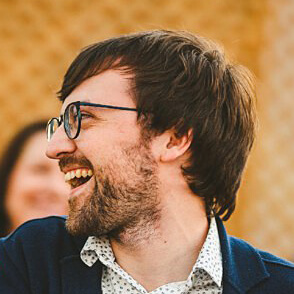How to Stop Creativity
I skimmed the table of contents of an endearingly tongue-in-cheek book today, How to Be Miserable: 40 Strategies You Already Use by Randy J. Paterson (HT Sam Hurd). For a long time, I’ve wanted to share what I’ve learned about creativity—what it is, how to learn it, how to navigate its challenges. This is mainly because learning and practicing creativity has been such a challenge in my own experience—but the most hard-won and necessary personal learning is often the hardest (and most important) to share.
In the spirit of How to Be Miserable, I thought maybe it would be easier to communicate my thoughts about creativity by turning the tables on the question. So, here are my top tips for how to stop creativity:
- Always give up after coming up with one idea. Don’t explore any further.
- Never stop exploring more ideas. Don’t make any decisions.
- Work on one tiny piece until it’s finished before moving on to the next part. Eventually you’ll get fatigued and never finish the whole thing.
- Don’t act silly! Don’t be weird! Be normal!
- If you do end up making something, don’t show it to anyone—other people might encourage you to make more things.
- If you have a spontaneous urge to draw or paint or write or sing, don’t listen to it.
- Make sure your supplies are disorganized, hard to get to, or nonexistent.
- If you feel like you need a break, don’t take one. Just keep working.
- Start the day by comparing your work to work by your classmates, colleagues, and random people on the internet and think about which one is better, yours or theirs.
- Best not to try something you haven’t done before. You might enjoy it and end up becoming good at it.
- Idle time spent staring out of windows, wandering around the neighborhood, and contemplating books you’ve read or the colors of bouquets are to be avoided at all costs. Focus on being productive!
- If you do start a project, don’t write it down or keep a to do list of steps to complete it. If you don’t write it down, hopefully you’ll just forget about it!
- The worst thing you can do is to travel anywhere outside of your normal routine. New environments risk exposure to new thoughts and experiences that might end up as inspiration.
- If you don’t feel like working or making anything, great! Just don’t do it! Definitely don’t make any kind of daily goal or schedule work sessions on your calendar that would encourage you to work if you don’t feel like it.
- As soon as you feel any hint of frustration, anxiety, or fear, just stop and do something else easier instead (probably check Twitter).
- Imagine extremely high expectations and incredibly ambitious goals, and don’t think about smaller steps to get there. Paralysis guaranteed!
- Just stare at your canvas or computer or paper and try to make something—don’t look around or daydream or reflect on your personal experiences. This way you’ll avoid anything that could possibly be original or creative!
- Avoid the company of children and animals—playtime is way too likely to cause creative energy.
- Same goes for any kind of enjoyable physical activity, especially those that take place outdoors like walking, hiking, yoga, swimming, biking, running, and friendly competitive sports.
- Keep a running list of conditions that must be met before you could possibly sit down to make anything—the room should always be too dark or too bright, you must always have coffee first and make sure you don’t have too much caffeine, you must have complete silence but also the comfort of background noise, and you must always have the exact model and size of pen you need.
If I think of more I’ll add them here! But with any luck I’ll follow this advice and I won’t. Enjoy your writer’s block!
Published

Kevin McGillivray is a web developer, painter, and writer in Wisconsin. He writes about creativity, online and offline neighborhoods, and vegetables. He paints and dives.